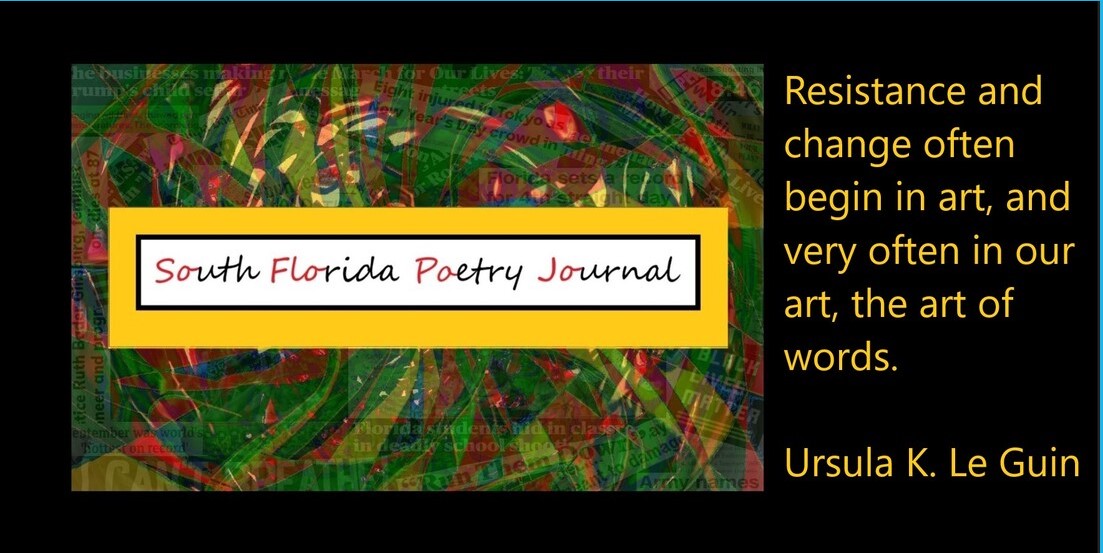Please REGISTER & VOTE in all of your local, state, and federal elections click the button above for more information.
ISSUE 26 August 2022
POETRY
Judy Ireland, Meryl Stratford, Michael Mackin O'Mara, Lenny DellaRocca, editors
If you are a poet, prophet, peace-loving artist, if you are tolerant, traditional or anarchistic, haiku or epic, and points in between; if your poems sing, shout, whisper, dance, scratch, tickle, trot or crawl; if you value the humane treatment of every creature and the planet on which we dwell, SoFloPoJo seeks your best work.

